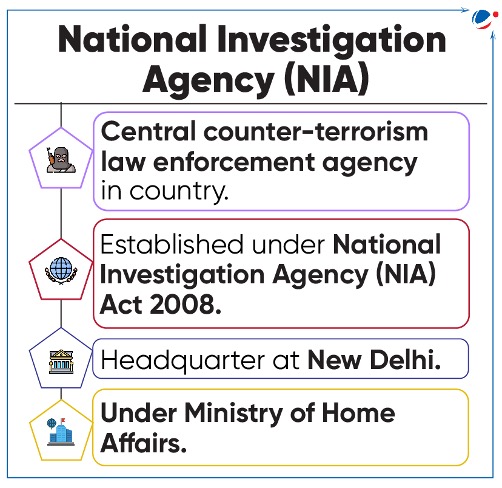- In Sita Soren v. Union of India (2024), a seven-judge constitution bench of the SC overruled its 1998 judgment in the PV Narasimha Rao case.
- In current judgement the SC said that Legislators cannot claim immunity from prosecution for taking bribes for speech/vote in the house:
- Key highlights of Judgement:
- Bribery is not immune: MPs/MLAs accused of taking bribes cannot claim any immunity from prosecution under Articles 105 and 194 of the Constitution.
- Article 105 (2) confers on MPs immunity from prosecution in respect of anything said or any vote given by them in Parliament or on any parliamentary committee.
- Article 194(2) grants similar protection to MLAs.
- Two-fold test: Assertion of a privilege by an individual MP/MLA would be governed by a twofold test:
- privilege claimed has to be connected to collective functioning of the House, and
- its necessity must bear a functional relationship to the discharge of essential duties of a legislator.
- Bribery is not immune: MPs/MLAs accused of taking bribes cannot claim any immunity from prosecution under Articles 105 and 194 of the Constitution.
- Jurisdiction of criminal court: Criminal courts are not excluded from hearing bribery cases against legislators merely because it may also be treated by the House as contempt or a breach of its privilege.
- Scope of parliamentary privileges: Purpose of parliamentary privilege to provide legislators platform to “speak” and “vote” without fear is equally applicable to:
- elections to the Rajya Sabha and
- elections for the President and Vice President.
PV Narasimha Rao vs State (CBI/SPE), 1998
- In the case, allegations had arisen that legislators of Jharkhand Mukti Morcha had accepted bribes to vote in favour of the government during a no-confidence motion in 1993.
- In a 3:2 majority judgment, a five-judge SC Bench held that legislators enjoy immunity from criminal prosecution for bribery as per Article 105(2) and Article 194(2) of the Constitution.
- Government has launched the ‘NITI for States’ platform.
- It is a comprehensive digital initiative designed to empower States/UTs in their pursuit of national development goals.
- Key Features of Platform:
- It offers a centralised repository of valuable resources, including best practices, policy documents, datasets, and NITI Aayog publications.
- Multilingual: It will be available in 22 major Indian languages and 7 foreign languages.
- Capacity Building: Tailored digital training modules for officials at various levels (block, district, and state).
- Expert Help: Specialized guidance through partnerships with leading institutions to address specific challenges.
- Government of India, Government of Tripura, and The Indigenous Progressive Regional Alliance (TIPRA) & and other stakeholders signed a tripartite agreement.
- Agreement aims to amicably resolve all issues of indigenous people of Tripura relating to history, land and political rights, economic development, identity, culture, and language.
- It will also constitute a Joint Working Group/ Committee to implement mutually agreed points and directs all stakeholders to refrain from resorting to any form of protest/agitation.
- Ministry of Home Affairs (MHA) launches unique Digital CCMS Platform.
- Newly developed Digital CCMS was designed by National Investigation Agency (NIA).
- It is a user-friendly and easy-to-deploy, customizable, browser-based software to help State Police forces in their investigations and prosecution.
- Significance of Digital CCMS:
- Enable NIA personnel to better coordinate in terrorism and organized crime cases, thereby improving justice delivery.
- Help State Police forces organise, integrate and digitalise data generated during investigations, such as case documents, extracted data, collected evidence, and charge-sheets presented to court.
- Foster stronger cooperation between central and state agencies including Anti-Terror Squads of State Police.
- Bring standardisation into investigations, streamline compilation of terror-related data, improves conviction rates in sensitive and complex cases across country.
- Assist NIA and State Police forces’ preparedness to implement new Criminal laws such as Bharatiya Nyaya Sanhita, Bharatiya Nagarik Suraksha Sanhita and Bharatiya Sakhsya Sanhita.
- Additionally, MHA launched Sankalan app – A compendium of New Criminal Laws by National Crime Records Bureau.
- It is designed for navigating through new criminal laws as a bridge between old and new criminal laws.
- It will work in offline mode as well and its availability has been ensured in far-flung areas.






